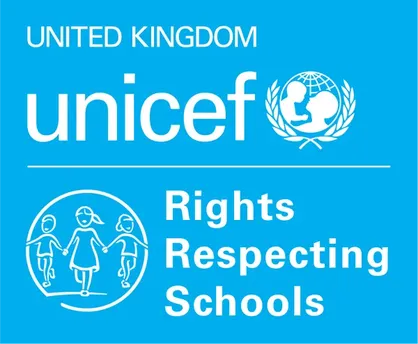Placing children at the heart of decision-making has been key to developing their Rights Respecting approach.
Shirley Toole, RRSA Lead and Deputy Headteacher shared how Allan’s Primary and Nursery became Rights Respecting.
Becoming a Rights Respecting School
“In 2021, our headteacher attended an Education Scotland event about children’s rights. This was the starting point for our Rights Respecting journey and we very quickly launched into a whole school self-evaluation which helped create our action plan.
“An In-Service training day provided an opportunity to shape our rights work with the whole school and nursery and prompted us to begin our action plan for Silver, through which we became Bronze: Rights Aware.”
Highlights from the school’s Rights Respecting journey
“Placing children at the heart of decision making has been the core of our Rights Respecting work so far.
“The Senior Leadership office door is always open and this provides a visible symbol that all suggestions and improvements are welcomed wholeheartedly.
“Our senior Pupil Parliament members have supported the appointments of teaching, support staff and our new pupil parliament. They have vetted candidates, created their own questions and taken part in all interviews. In collaboration with staff, they agreed on a variety of school appointments, conducting themselves in a professional manner throughout the process. We take every opportunity to trust and empower our children in the decision-making process and they amaze us in their capacity to work with us to drive forward improvements in the classrooms and playground.
“An example of decision making in action is the P6 flexible seating pilot. We invested in our children’s idea to drastically change their learning environment. Through being brave and responsive, the children and their class teacher have created a wonderful example of thinking outside the box to meet the needs of all learners. We also ask staff to ‘walk in our children’s shoes’ by experiencing different learning environments at our staff meetings.
“Children-centred planning is also supported through the development of One Page profiles as part of every child’s transition to their new class and teacher. Staff have reported that these provide valuable pieces of information that help children through change.”
Overcoming challenges
“Taking others with you can be a challenge, especially at the beginning of your RRSA journey.
“It is important to ensure that you create the right culture within your setting which is built on an accurate and clear understanding of what children’s rights are.
“A thorough self-evaluation can be a challenge, but, in our experience, especially when we have surveyed parents and carers, everyone has valued the opportunity to discuss children’s rights within a safe space. They have enjoyed learning from their own children and the school’s rights work has been helpful at home too.
“Some members of our staff team questioned our Gold status but when we unpicked all of what we do both instinctively and through careful planning and discussion they soon realised that children’s rights is at the core of everything we do. It is important to keep your rights work visible throughout our daily interactions and communications with others.
“We talk and sing about children’s rights every week at assembly and this helps to keep the focus up to date and responsive to what is going on in the wider world.”
Advice and tips for other Rights Respecting schools
- The RRSA programme provides a progressive structure on which to build the foundations of robust children’s rights understanding and action. Our advice would be to use the online platform (website and e-learning) for resources and inspiration – everything you need is there!
- Link in with others within your school community as much as possible. This ‘looking outwards’ approach can only serve to strengthen all your rights learning and work. Create a culture where children’s rights fits into every decision and school priority, it should never be done in a tokenistic way.
- Our final piece of advice is to link in with your RRSA Professional Advisor, pre, during and post accreditation as they are always there to support you on your journey every step of the way.
School context: In 2022-23, the school roll was 170 and had a wide range of indicators of deprivation (deciles), with 41% of families living in the more extreme end, and a wide gap in terms of children’s starting points. GIRFEC (Getting it Right for Every Child) is at the heart of everything the school does and is reflected in the school’s staged intervention data which supports 44% learners who have different and individual requirements, such as English as a Second Language (EAL), Dyslexia, Dyscalculia, Autism, ADHD and social and emotional needs.



